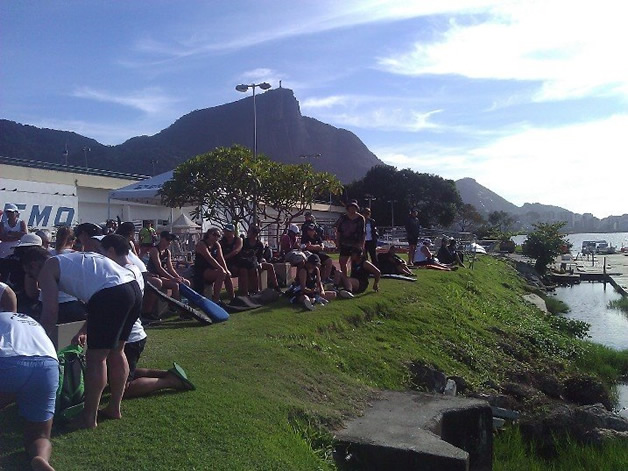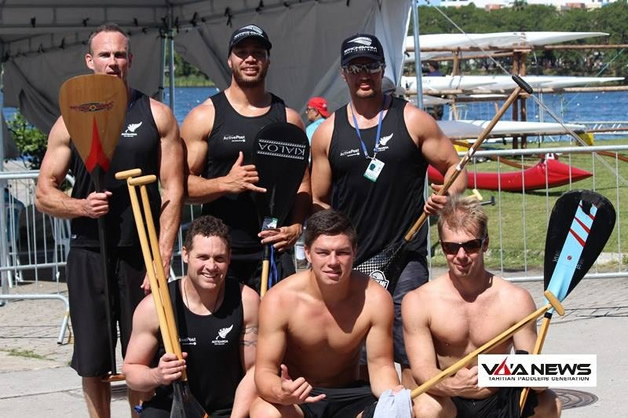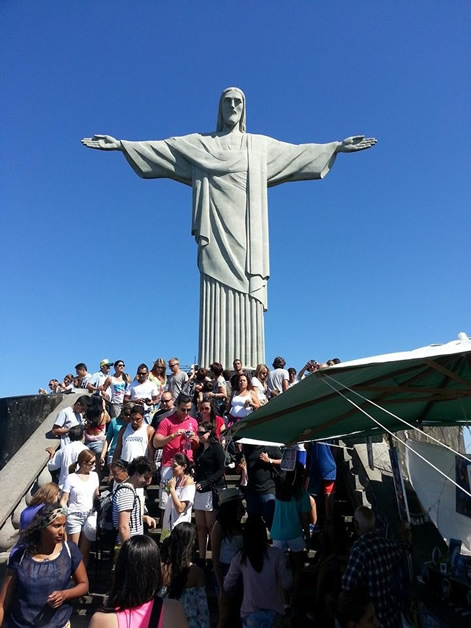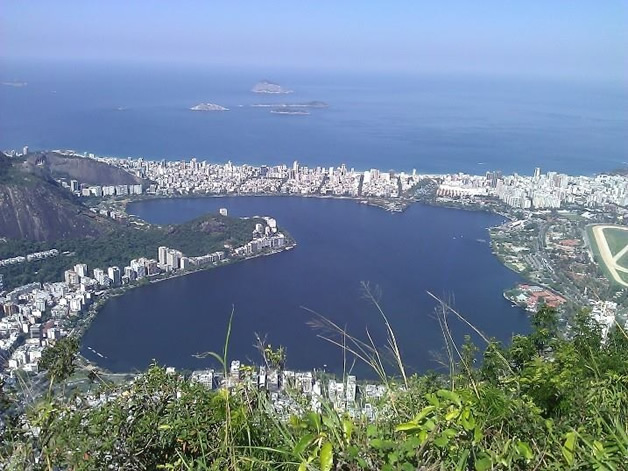In August, I was lucky enough to represent Aotearoa New Zealand at the World Waka Ama Championships held at the 2016 Olympic course in Rio de Janeiro, Brazil.
This was the 16th world championship event – the first was held in California in 1984. This year, over 20 countries attended including favourites Tahiti, as well as Hawaii, Australia and our hosts Brazil. Smaller but talented nations included Rapanui (Easter Island), New Caledonia and the Pacific North West (Native American tribes spanning both USA and Canada). European countries included England, Italy and a few from the Ukraine.
Getting to the worlds was a goal I set myself a few years back, but I thought it wasn’t going to happen after our team, Aoraki Matatū, decided not to go after qualifying by winning the open men’s 500 metre silver at this year’s nationals at Lake Karapiro. However, along with two of my Ōtautahi team mates and some of the country’s top singles paddlers, a New Zealand open men’s team was formed and our tickets booked.
The flights to Rio were long (20+ hours), but the excitement of competition soon took over, and with training the first morning after arriving, there was no time for jet lag. We did get some sightseeing in before the championships started, taking in a football match at the Maracana stadium and getting up to say ‘kia ora’ to Christ the Redeemer. But following the opening ceremony we had six full-on days of paddling in heats, repecharges and finals across four events. This included the single, six and 12 person 500 metre sprint and the six person 1500 metre mid-distance turn race.
As expected, Tahiti were dominant, winning 31 gold medals, while the NZ team won one gold, eighteen silvers and nine bronzes. Brazil were pretty awesome on their home course, winning a bunch of medals along with Hawaii, Australia and New Caledonia. While our open men’s team didn’t win a medal (missed a bronze by half a second), we made all of our finals (still in the top six in the world) and we learnt so much about what it takes to compete at the top level. Two of our team won individual medals, including NZ open champ Tupu King and NZ master champ Turi Hodges, both picking up bronze medals in their respective categories.
Getting home to the whānau and our awesome whenua was nice and now the training has started for next year’s nationals. The road to the next worlds on the Gold Coast in 2016 is also being planned – we’ve got to get a world medal. Training is also starting for my Te Waka Taiohi o Tahu programme, aimed at getting more Ngāi Tahu whānau to both the nationals and the worlds in the future. Contact me on [email protected] if you have tamariki aged 6-12 who want to be part of this.
Thanks so much to Te Taumutu Rūnanga, Te Hapū o Ngāti Wheke and Te Rūnanga o Ngāi Tahu for the support as well as my outstanding whānau for their support and allowing me to follow my dreams. Obrigardo (thanks in Portuguese), mauri ora ki a tātou. Nā Craig Pauling.

Team New Zealand at the race venue on practice day with Christ the Redeemer watching from above.

The 2014 Aotearoa Open Mens’ team (clockwise from top left) Ross Gilray, Brad Anderson, Turi Hodges, Jack Wormald, Tupu King and Craig Pauling.

The masses at the footsteps of Cristo Redentor (Christ the Redeemer) – a must do, such an amazing view and an ever-present symbol of Rio.

The view from Christ the Redeemer over Lagoa Rodrigo de Freitas, with Ipanema Beach in the background and the race venue in the top right corner of the Lagoa.